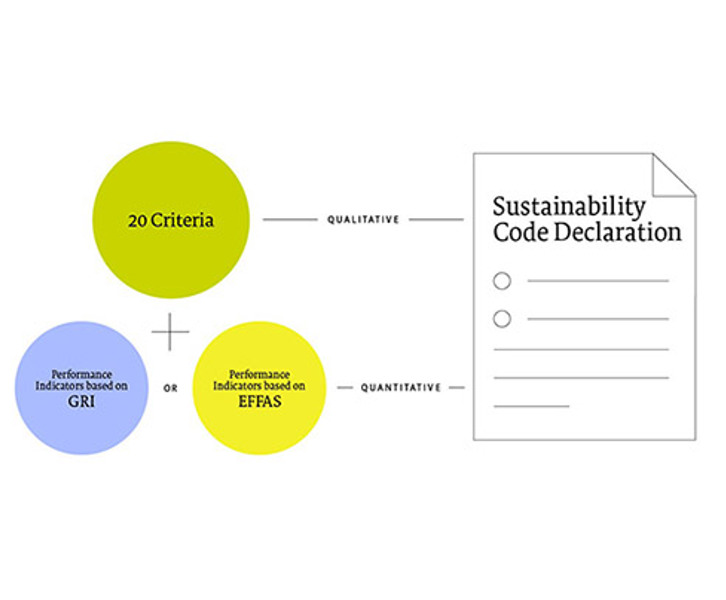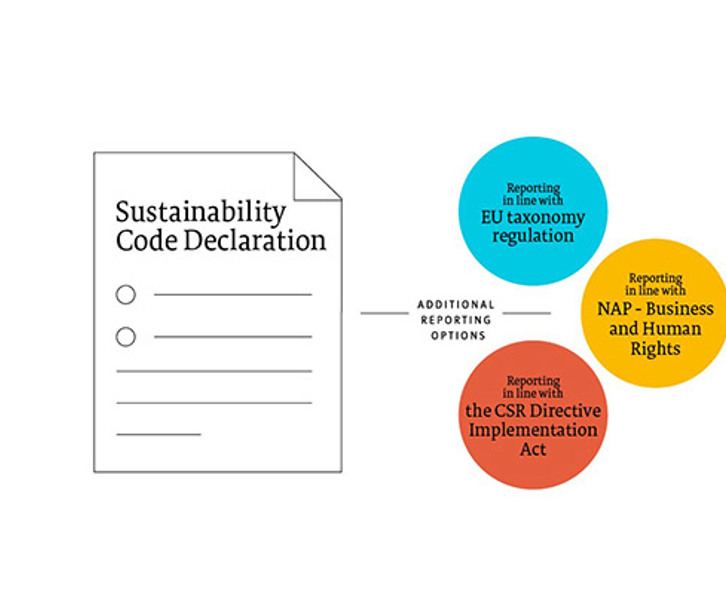DNK Report
In order to comply with the Sustainability Code, companies prepare a DNK declaration covering the twenty DNK criteria and a selected set of quantifiable performance indicators. Declarations according to the previous Sustainability Code standard can still be submitted and checked in our old database until May 1, 2025. In addition, it is possible to report on obligations such as the CSR Directive Implementation Act (CSR-RUG), the EU Taxonomy and the National Action Plan on Business and Human Rights.

Getting started
We’ll take you through step by step how to get started on your first Code declaration.
Learn more
Report contents
All clear on the process? Next, we explain what goes into a Code declaration: qualitative criteria with various aspects and quantitative performance indicators.
Learn more

View reports
All companies that use the standards set out in the Code to report on their sustainability performance must publish their Sustainability Code declaration on our database.
Learn more
Compare reports
Our database’s practical comparison feature allows you to compare, for example, reports from the same sector with one another.
Learn more
